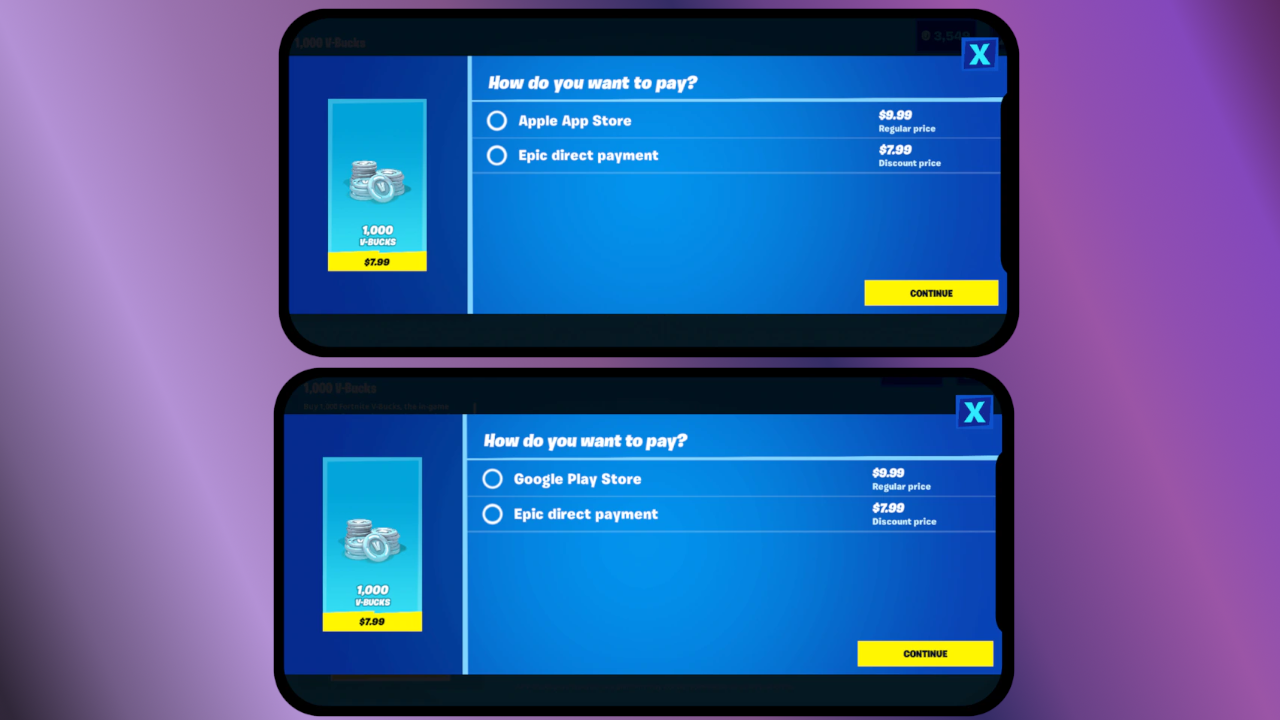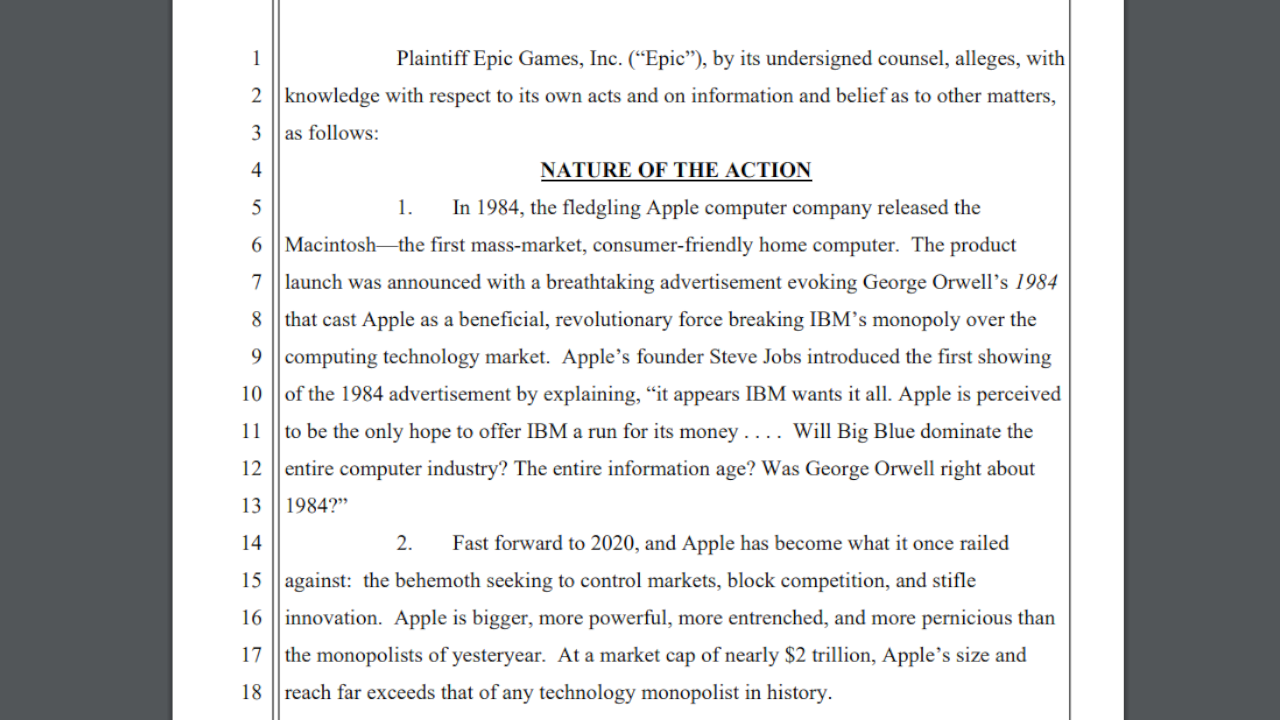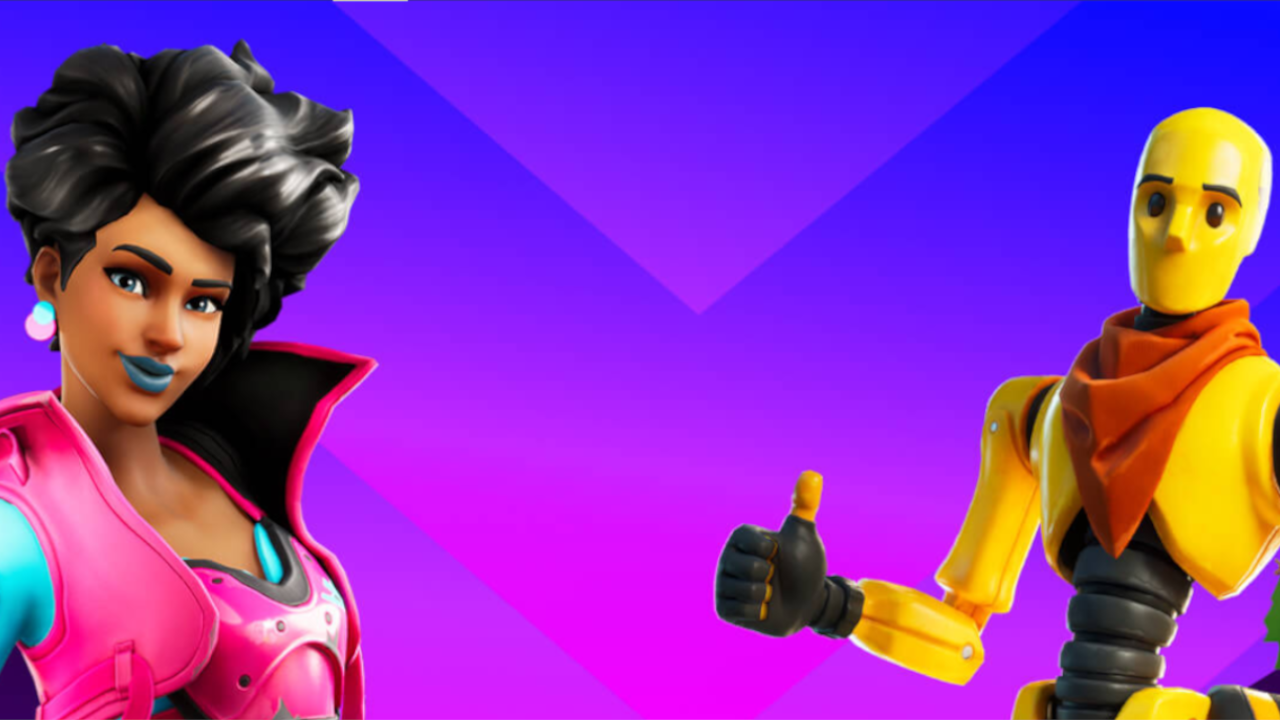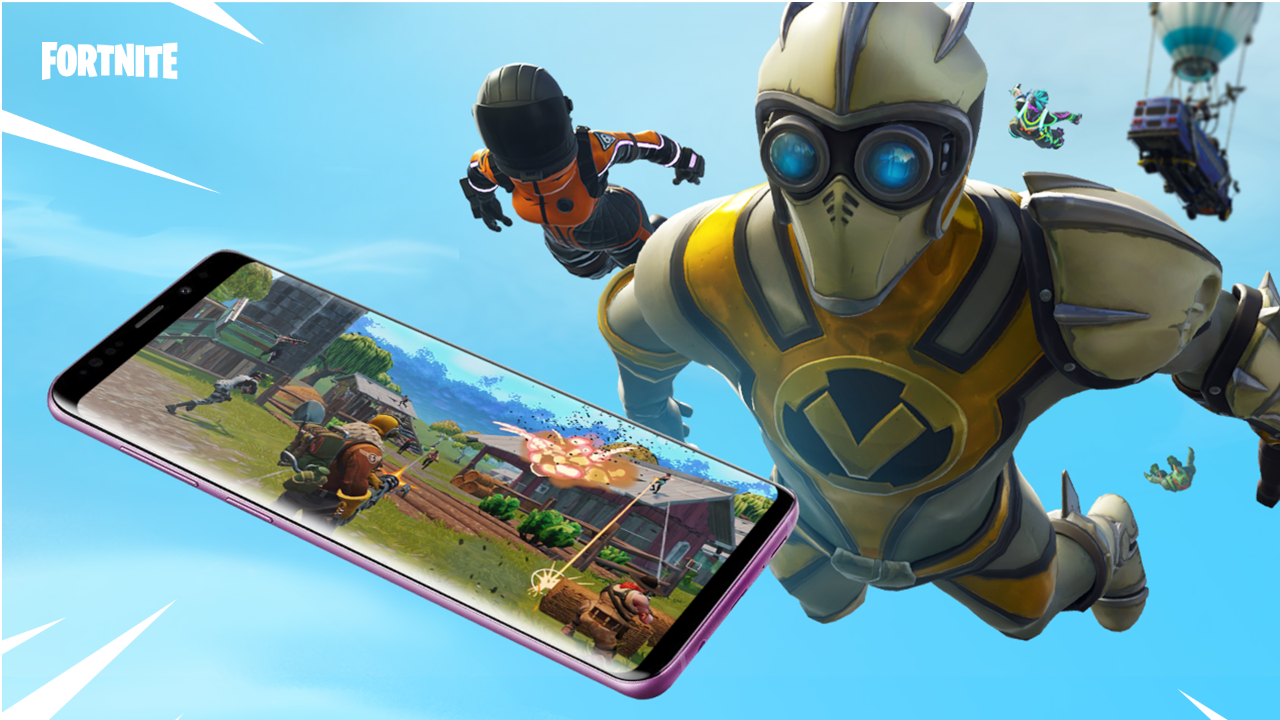

Fortnite developer Epic Games is currently embroiled in legal battles with Google and Apple over the two tech giants' app store policies that sees them take a 30% cut of all in-app purchase.
Epic clearly planned to take a stand by drawing the ire of both companies when it chose to bypass both the App Store and Google Play Store's in-app purchasing methods, leading to the hugely popular battle royale game being removed from both storefronts, meaning players can't install the game or download future updates on Android or iOS, but there is a workaround!
- Xbox Series X price reveal confirmed - but it's not when you think
- PS5 pre-orders: You can reserve a PlayStation 5 at THESE retailers
Fortnite - what happened on iOS and Android?

Epic instigated its move to take on Apple and Google yesterday, with the announcement of the Fortnite Mega Drop that offers players 20% off on all V-Bucks and real-money offers inside of Fortnite "when using select payment methods." Epic stressed this isn't a sale, but new discounted prices available anytime.
The issue arose when it circumvented both platforms' policies by allowing direct payments to Epic, meaning neither would be able to take their 30% cut. Epic's complaint is that these policies are applied unfairly so that Apple and Google can get a large cut of in-app purchases.
"After we added direct Epic payments to save players up to 20%, Apple retaliated by blocking Fortnite players from installing and updating the game through the App Store. Apple demands that game developers use their payment processing service, which charges an exorbitant rate of 30%. Apple blocks developers from using more efficient payment methods such as Mastercard (including Apple Card), Visa, and Paypal, which charge rates of 2.5% to 3.5%, and therefore prevent developers from passing the savings on to customers.
"Apple intentionally sabotages consumer iOS devices to prevent users from installing software directly from developers, as consumers are free to do on PC and Mac. We know this is an intentional strategy because iOS does fully support installing software from the web -- but only allows it for corporations.
"Apple uses this direct-installation blockade in order to force consumers to use their App Store, and then demands that game developers use their payment processing service. By blocking consumer choice in software installation, Apple has created a problem so they can profit from the solution."
Sign up to the T3 newsletter for smarter living straight to your inbox
Get all the latest news, reviews, deals and buying guides on gorgeous tech, home and active products from the T3 experts
Epic highlights that thousands of apps in the App Store accept direct payments, citing the likes of Amazon, McDonald's, and Grubhub, adding:
"Apple is just blocking direct payments for certain products (like games) and companies (like Epic). Epic believes that all mobile users have a right to save money using more efficient purchasing options. Adding our own payment system allows us to offer players choice while passing along savings, just like other apps are allowed to do. This choice provides a more level playing field on mobile stores while saving players money, which Apple should agree is a positive thing for everyone!"
Apple has since blocked Fortnite from the App Store, and Google has followed suit with the Play Store. Epic has now started the #FreeFortnite movement, running an in-game video that parodies a 1984 Apple commercial that the company made to challenge IBM's monopoly - something directly cited by Epic in the legal papers it's filed.

GamesRadar's James Jarvis posted a side-by-side of the Apple ad and the Free Fortnite parody which you can check out below:
Took a little bit of re-editing - all the shots are there, just in a slightly different order - Fortnite 2020 vs Apple 1984. Audio from the Fortnite 2020 verison. #freefortnite pic.twitter.com/2WPGs6WlFjAugust 13, 2020
Fortnite - can I still play on mobile?

If you already have Fortnite installed on your iOS or Android device, you can carry on playing Chapter 2 - Season 3’s 13.40 update, but once Chapter 2 - Season 4 kicks off, mobile players won't be able to access any of the new content or the new Battle Pass.
If you haven't installed the game on mobile, but were planning to, it's a little too late now that it's been blocked on Apple's App Store and Google's Play Store.
If the game isn't on your device, but you've installed it on iOS previously, you can recover it. GameSpot has confirmed that you can head to your profile on the App Store, access your purchases, go to My Purchases, and search for Fortnite. You'll be able to reinstall on iPad and iPhones but again, you can only play the current version of the game and won't be able to get any of the new content or updates.
For iOS users looking for a refund, Epic has clarified that all refunds have to be requested through Apple directly.
Fortnite - How to play Chapter 2 - Season 4 on mobile

The good news is that Fortnite hasn't been removed from Samsung's Galaxy Store. A Samsung spokesperson confirmed to GIzmodo AU that the game is available in the Galaxy Store on devices like the Galaxy S20, and when the Galaxy Note 20 launches on August 21, it'll get a day one update which will allow users to access the game on the store.
Samsung doesn't appear to be following Apple and Google's suit, and if the lawsuits carry on into Chapter 2 - Season 4, in the face of Epic's #FreeFortnite movement that will see the companies inundated with messages from angry kids, Samsung is going to be the only company with a mobile device that can offer the new content.
Shabana worked at T3.com as News Editor covering tech and gaming, and has been writing about video games for almost a decade (and playing them since forever). She's had bylines at major gaming sites during her freelance career before settling down here at T3, and has podcasts, streaming, and video content under her belt to boot. Outside of work, she also plays video games and should really think about expanding her hobbies. If you have any tech or gaming tips, shoot over an email or DM her on social media.
-
 This is the sound of BMW's upcoming Neue Klasse EVs
This is the sound of BMW's upcoming Neue Klasse EVsHas BMW cracked the problem of making EVs sound fun with its next-gen soundscape for its Neue Klasse cars
By Alistair Charlton Published
-
 Build unshakeable core strength with a kettlebell and these three exercises
Build unshakeable core strength with a kettlebell and these three exercisesAdd this to the end of your workout to fire up your midsection muscles
By Bryony Firth-Bernard Published